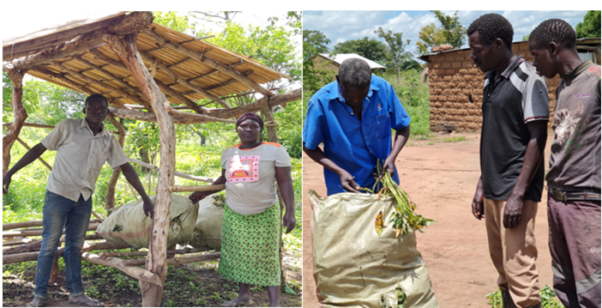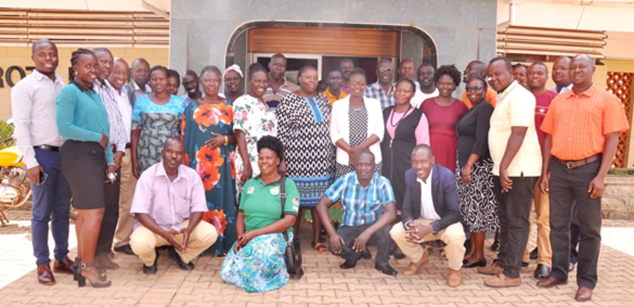Greetings, sweetpotato enthusiasts! Have you ever wondered why, despite the vast number of sweetpotato varieties available in Africa, only a small portion of farmers in sub-Saharan Africa opt for improved sweetpotato varieties? Available estimates indicate that only 6% of farmers plant Improved Sweetpotato Varieties (ISV).
Well, let me guide you through a recent workshop held in the heart of Uganda, where we examined this very question.
Imagine this: December 2023, Soroti city is bustling with sweetpotato enthusiasts from various industry sectors. Gathered around a table are representatives spanning from sweetpotato seed producers to local government extension officers, all eager to unravel the intricacies of sweetpotato cultivation. This isn’t just any ordinary gathering—it is a multistakeholder workshop to shed light on the reasons behind the low uptake of improved sweetpotato varieties (ISVs) in Uganda, and how that can be changed.
Since 2021, The International Potato Center (CIP) in collaboration with Amuria District Production Department (ADPD) and several other stakeholders have spearheaded interventions to nudge farmers to use quality seed of ISVs. The intervention sought to resolve the seed access (i.e., unavailability constraint). It has made certified seed of ISVs available at designated points in the village allowing farmers to obtain at subsidized fee quality seed of ISVs. Layered to this is a field experiment aimed at understanding if behavioural interventions (namely, nudges) can promote the purchase of quality seed of ISVs by farmers in Amuria district. Specifically, one group of farmers received the nudge intervention framed to create awareness, and also addressed the information constraint. The study’s primary purpose is to explore the role that behavioral interventions can play in promoting the use of quality seed of ISVs. There is also interest in understanding if the effects differ for women, men and the youth. That is, are they inclusive? A rapid assessment of the intervention found positive but weak response to the nudges. We are now exploring the inclusivity issue.

Uganda boasts one of the largest collections of sweetpotato varieties outside of Latin America, the sweetpotato homeland. Despite this abundance, less than 10% of sweetpotato farmers in Uganda opt for ISVs. So, what’s the catch?
There are a myriad of challenges contributing to this situation. From farmers’ lack of awareness about ISVs and inadequate knowledge of better ways to grow them to the high costs of accessing quality seed, the path to sweetpotato success could be smoother.
But fear not, for where there are challenges, there are also solutions. One key takeaway from the workshop was the importance of education and outreach. Learning tours, field demonstrations, and collective action emerged as potent tools for bridging the gap between farmers and ISVs. With a little tweaking and purposeful targeting, these events can be made to benefit all stakeholders, regardless of gender. Imagine embarking on a tour of vine multiplication sites, where you not only get to witness the latest innovations in sweetpotato cultivation but also gain valuable insights into new varieties and agronomic techniques.
There is power in collective action. By joining seed producer associations, vine multipliers can significantly reduce production costs and make quality seed accessible to farmers. Moreover, by encouraging active participation from women in these associations, we can ensure inclusivity and diversity in sweetpotato leadership.
Of course, this is only possible with the support of initiatives like the CGIAR Initiative on Market Intelligence and the Program for Seed System Innovation for Vegetatively-Propagated Crops in Africa (PROSSIVA). With their backing, the sweetpotato revolution in Teso sub-region, Uganda’s largest sweetpotato producer, and in Uganda as a whole, is well underway.
So, there you have it—insights from the forefront of sweetpotato innovation. As we bid farewell to the workshop and look toward a future ripe with possibilities, one thing is clear: the journey to sweetpotato success is best traveled together. So, who’s ready to join the ride?

To read more about this CIP-led effort, download the Soroti Workshop Report.
Acknowledgement: The reported study was funded by the CGIAR Initiative on Market Intelligence WP3, the CGIAR Gender Platform (Gender INIT-05) and Program for Seed System Innovation for Vegetatively-propagated crops in Africa (PROSSIVA) project.
